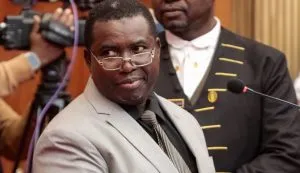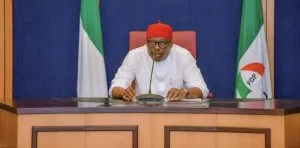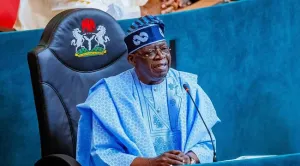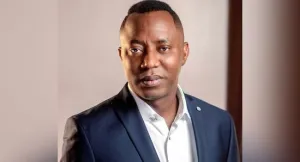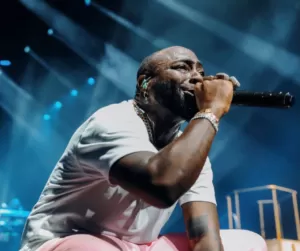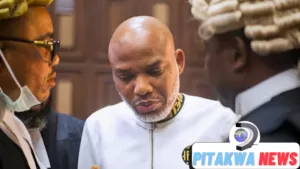Bail Granted to Sowore, Nnamdi Kanu’s Lawyer, Brother, and Others in Abuja Protest Case
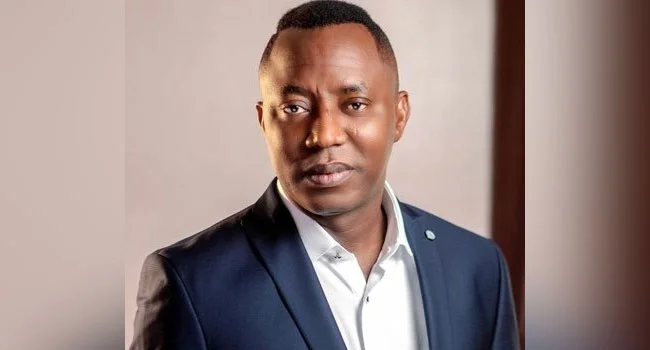
In a significant development in Abuja, a Magistrate Court in Kuje has granted bail to prominent Nigerian human rights activist Omoyele Sowore, alongside Aloy Ejimakor, the legal counsel to detained Indigenous People of Biafra (IPOB) leader Nnamdi Kanu, Kanu’s brother Prince Emmanuel Kanu, and eleven other individuals arrested during a recent protest. The court, presided over by Magistrate Abubakar Umar Sai’I, set bail at ₦500,000 for each defendant, with two sureties required to match the same amount.
The group faced charges of unlawful assembly and disturbance of public peace stemming from their participation in the #FreeNnamdiKanuNow demonstration on October 20, 2025, near the Transcorp Hilton in Abuja. The peaceful protest called for the unconditional release of Nnamdi Kanu, the IPOB leader who has been detained by the State Security Service since his rearrest in 2021. Twelve of the defendants, including Ejimakor and Emmanuel Kanu, were apprehended during the demonstration, while Sowore was arrested separately on October 23 outside the Federal High Court, where he had attended Kanu’s ongoing terrorism trial to show solidarity. Authorities claimed Sowore led protesters into a restricted area, prompting his detention.
In addition to the ₦500,000 bail amount, the court imposed stringent conditions for release. Each defendant must provide a verified National Identification Number (NIN), three-year tax clearance certificates, and surrender their passports to the court. These requirements have sparked debate, with some viewing them as excessive hurdles for individuals exercising their right to free expression.
The thirteen defendants granted bail include Omoyele Sowore, a well-known activist and publisher of SaharaReporters; Aloy Ejimakor, Nnamdi Kanu’s lawyer; Prince Emmanuel Kanu, Kanu’s brother; Joshua Emmanuel; Wilson Anyalewechi; Okere Kingdom Nnamdi; Clinton Chimeneze; Gabriel Joshua; Isiaka Husseini; Onyekachi Ferdinand; Amadi Prince; Edison Ojisom; and Godwill Obioma. The ruling has been met with cautious relief by supporters, though it follows intense criticism from human rights advocates who argue the arrests were an attempt to suppress dissent and stifle calls for Kanu’s release.
Nnamdi Kanu, the central figure in this saga, has been a polarizing figure in Nigeria’s political landscape. As the leader of IPOB, a group advocating for the secession of southeastern Nigeria, Kanu was first arrested in 2015 on charges including terrorism and treasonable felony. After jumping bail in 2017, he was rearrested in 2021 and has remained in custody, with his trial drawing widespread attention. The #FreeNnamdiKanuNow protest reflects growing frustration among his supporters, who allege his detention is politically motivated and point to broader issues of human rights abuses in Nigeria.
Omoyele Sowore, no stranger to confrontations with the state, has been a vocal critic of the Nigerian government for years. His 2019 #RevolutionNow protests, which called for systemic reforms, led to his own arrests and a prolonged legal battle. His involvement in the Kanu protest underscores his continued commitment to activism, though it has once again placed him in the crosshairs of security agencies. Reports of an alleged attempt by police to rearrest Sowore outside the court after the bail ruling have further heightened tensions, with lawyers reportedly intervening to prevent his detention.
The bail decision marks a pivotal moment in the ongoing struggle over protest rights and freedom of expression in Nigeria. While the release of Sowore, Ejimakor, and the others offers temporary reprieve, the strict bail conditions and the broader context of Kanu’s detention highlight the challenges facing activists and dissenters in the country. The case has drawn attention to Nigeria’s judicial system and its handling of politically sensitive cases, with many watching closely to see how the government navigates the delicate balance between security concerns and democratic freedoms.
As the #FreeNnamdiKanuNow movement continues to gain traction, the outcome of this case could have far-reaching implications for Nigeria’s political landscape. For now, the thirteen defendants await the fulfillment of their bail conditions, while supporters remain vigilant, hopeful that their release signals a step toward greater respect for fundamental rights in the nation.
